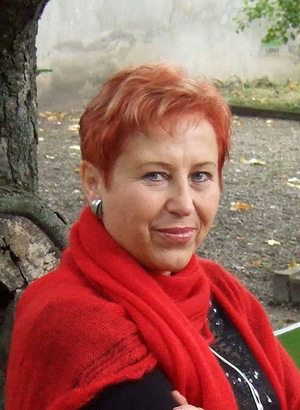Writer Aldona Ruseckaitė, "Žemaitė is not a boring grandma with a headscarf" 3
In brief: Quite recently, the writer Aldona Ruseckaitė presented her books - "Žemaitė's Secret" and "Better (not) to Forget" - instead of other authors' (something we all have gotten used to) at Maironis Lithuanian Literature Museum in Kaunas. The visitors found themselves in a tastefully prepared literary performance, in which the Lithuanian literature classic Žemaitė came to life not as a public figure and classic, but as a mother and a woman tormented by love, guilt and longing.
A. Ruseckaitė says, “I can immediately confess and "give myself away" - the novel "Žemaitė's Secret" and poetry book "Better (not) to Forget" are absolutely unrelated as a writing process. I was writing a semi-documentary book on Žemaitė and I had completely separated that text from myself, did not connect anything. And the poems where written in about six years during which I wrote four more novels. A poem falls out - I may sound banal, but - from the depths of one's soul, it is not linked to other things, it does not care what you are writing, it comes flying like a small rain cloud and releases its little droplets. Thus, during the presentation of these two books that you have mentioned I connected not only Žemaitė, but something that would fit her from my poems, that would reflect her love, sorrow, life and I also wanted to show how I was feeling."
"After reading a lot of literature on Žemaitė I created a structure consisting of three parts in the book "Žemaitė's Secret". The first one starts form 1911, when she came to live in Vilnius and started writing letters to Petrauskas. In the context of the city of the time Žemaitė was a very distinct character. The second part of the book is America. We can only say one sentence - Žemaitė left for the United States to collect donations for war refugees. However, she spent the last six years of her life overseas and much happened there - various events and adventures, changes in political views, creative work and publishing. The America part is quite broad, that period is little known for the reader. The third part is 137 days spent in Lithuania. That is how long she lived after returning from the States on 1921, the 23rd of July, but then again - many interesting things happened during these several months and there is really a lot to tell," explains the writer.
Talking about her readers, A. Ruseckaitė says, “I leave absolute freedom to readers - they can read whatever they want. If they say something good or critical after reading one of my books, I always listen carefully. It seems to me that poems always contain more sorrow and more profound listening to the events of life, the eternal things - love and death. So it is - you pour your heart out in a poem.”









